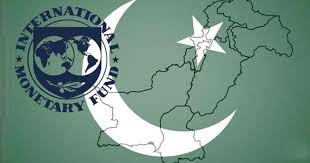The International Monetary Fund (IMF) has issued a list to do with Pakistan in the next three weeks to restart a stalled loan program.
According to sources IMF has informed Pakistan must make “all required efforts” to complete the list of activities within three months. All these activities to pave the ground for a staff-level agreement and $1 billion tranche under the Extended Fund Facility must be completed within two to three weeks (EFF).
Finance Minister Ishaq Dar will confer with his core economic team in a few days to reach a consensus on actions to be taken in the coming weeks to revive the IMF program.
A top official told the local newspaper “The News” that “Now the ball is in Islamabad’s court as the IMF demands the government to solve the cash-bleeding energy sector, including power and gas, implement further taxation measures, and pursue structural reforms in the remaining Fund program period.”
Pakistan and the IMF held another round of virtual talks Thursday, during which the finance minister assured the IMF that Pakistan was expecting dollar inflows from a friendly country by late Dec or early Jan, keeping in mind the State Bank of Pakistan’s $6.11 billion in foreign exchange reserves. The Finance Ministry urged the Energy Ministry to rewrite the CDMP strategy until 2023.
One official said, “We cannot accept a power surcharge of Rs 31.60 or Rs 12.69 per unit, given the political cost,” adding that the relevant authorities were tasked with revising the CDMP so Pakistan could raise electricity tariffs on the low end.
The government might enhance efficiency and governance to minimize subsidies. The Energy Ministry committed to producing a new CDMP strategy for 2022-23 agreeable to the government and IMF.
Independent observers say the government wants a balanced strategy to walk the tightrope.
The patchwork resurrection of the IMF program may not work; thus, the government must design a plan to remove the Rs4 trillion circular debt in the electricity and gas sectors.
The IMF agreed to an Rs340 billion adjustment for flood-related spending in the current fiscal year.
The Fund asked Pakistan to take extra measures to reach the FBR’s aim. IMF estimates FBR won’t meet its revenue target of Rs7,470 billion for the current fiscal year.
The IMF is particularly concerned that there are fewer than three million income tax filers, compared to 3.4 million in the past fiscal year.
FBR officials said corporations will file by December 31, 2022, so the number of filers may climb.
The government could impose higher customs duties and offer another tax amnesty for FATA/PATA.
Nontax income has caused a gap in the Petroleum Development Levy, and the government is considering giving the banking sector currency-manipulated profits as dividends.
Sources added that the government will also hike the Petroleum Levy on fuel in the coming months.






